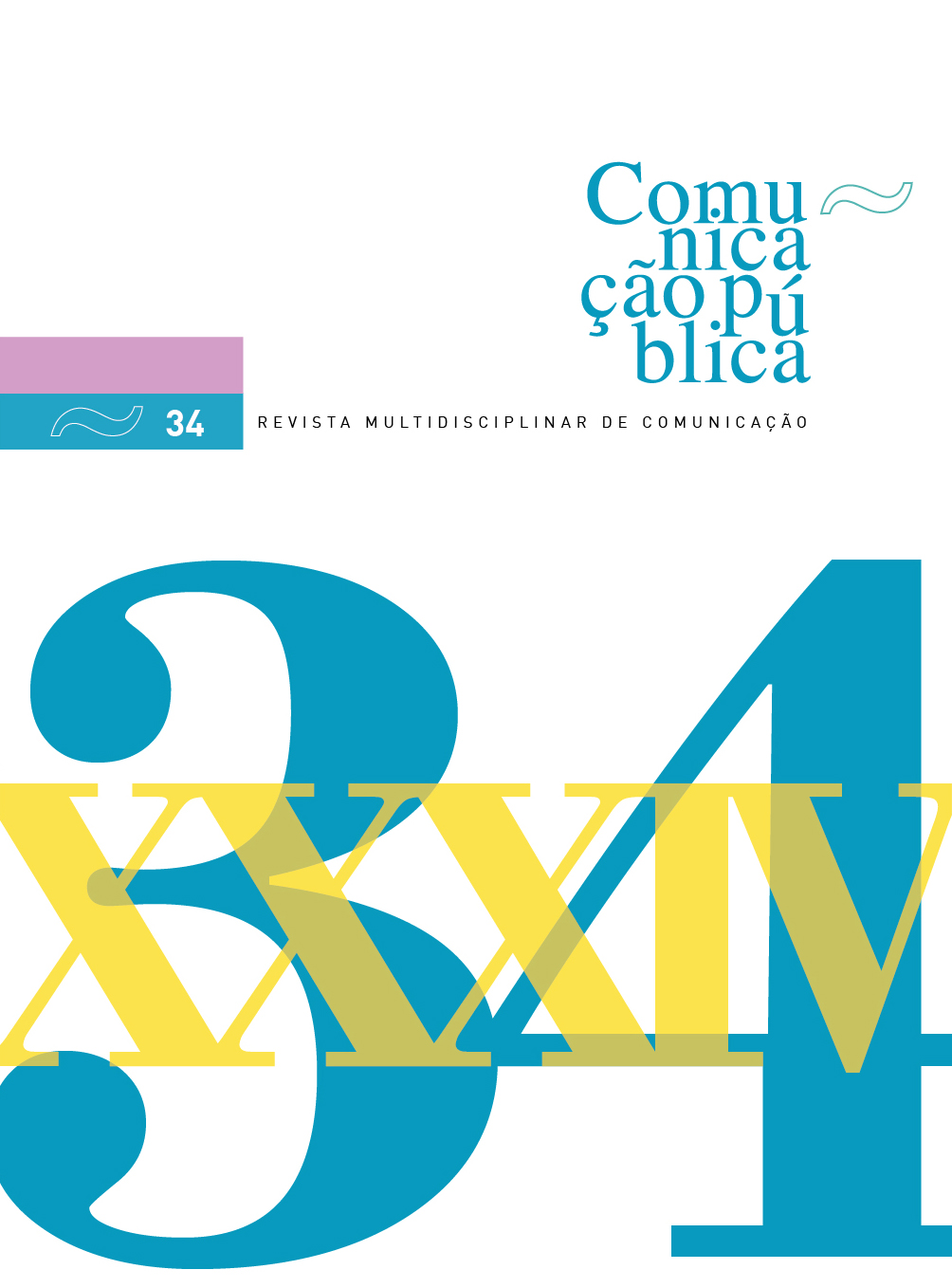Audiovisual and Multimedia Studies
DOI:
https://doi.org/10.34629/cpublica.777Keywords:
audiovisual, multimedia, digital media, production studies, reception studiesAbstract
The expressive and communicative potentialities of digital media have challenged the established assumptions about the audiovisual and multimedia as contexts and objects of study. The screens are multiplying, the apparatuses of access to contents are hybridizing, the emerging technologies are becoming new modalities of mediation and gaining centrality in daily life, the texts are fragmenting, the receiver acquires a double and simultaneous status of consumer and producer. Through the work of national and international researchers, this thematic dossier explores contemporary dynamics of the processes of creation, distribution and reception of the audiovisual and multimedia in different fields, contributing to an updated reflection on their impact on cultural and societal practices.
Downloads
References
Bourdieu, P. (1993). The field of cultural production. Polity Press.
Couldry, N. (2020). Recovering critique in an age of datafication. New Media & Society, 22(7): 1135-1151. https://doi.org/10.1177/1461444820912536.
Frey, M. (2021). Netflix tecommends: Algorithms, film choice, and the history of taste. University California Press.
Johnson, C. (2019). Online TV. Routledge.
Lotz, A. (2007). The Television will be revolutionized. New York University Press.
Lotz, A. (2017). Portals. A treatise on internet-distributed television. Maize Books.
Lotz, A. (2018). We now disrupted this broadcast. How cable transformed television and the internet revolutionized it all. MIT Press.
Lotz, A. (2021). Media disrupted: Surviving pirates, cannibals, and streaming wars. MIT Press.
Lotz, A. (2022). Netflix and streaming video: The business of subscriber-funded video on demand. Polity.
Lupu, R., Komorowski, M., Lewis, J., Mothersdale, G. & Pepper, S. (2023). Greening the audiovisual sector: Towards a new understanding through innovation practices in Wales and beyond. Sustainability, 15(4), 2975. 1-17. https://doi.org/10.3390/su15042975.
Manovich, L. (2001). The language of new media. MIT Press.
Meikle, G. & Young, S. (2012). Media convergence. Networked digital media in everyday life. Macmillan.
Møller Hartley, J., Bengtsson, M., Hansen, A. S. & Sivertsen, M. F. (2022). Researching publics in datafied societies: Insights from four approaches to the concept of ‘publics’ and a (hybrid) research agenda. New Media & Society, 25(7), 1668-1686. https://doi.org/10.1177/14614448211021045.
Navar-Gill, A. (2020). The golden ratio of algorithms to artists? Streaming services and the platformization of creativity in American television production. Social Media + Society, 6(3), https://doi.org/10.1177/2056305120940701.
Williams, R. ([1974] 2003). Television. Technology and cultural form. Routledge.
van Dijck, J. (2014). Datafication, dataism and dataveillance: Big Data between scientific paradigm and ideology. Surveillance & Society 12(2): 197-208.
Downloads
Published
Issue
Section
License
Copyright (c) 2023 Direitos do Autor (c) 2023

This work is licensed under a Creative Commons Attribution-NonCommercial 4.0 International License.
Os conteúdos da Comunicação Pública estão licenciados com uma licença Creative Commons - Atribuição-NãoComercial 4.0 Internacional.


